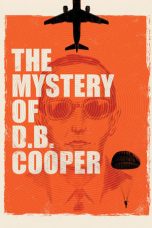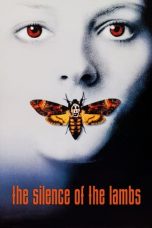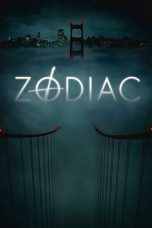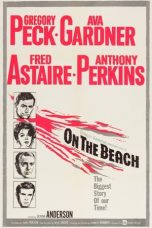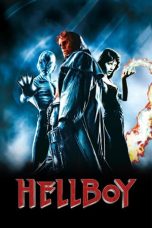- Source: David Cooper (psychiatrist)
David Graham Cooper (1931 in Cape Town, South Africa – 29 July 1986 in Paris, France) was a South African-born psychiatrist and theorist who was prominent in the anti-psychiatry movement.
Cooper graduated from the University of Cape Town in 1955. R.D. Laing claimed that Cooper underwent Soviet training to prepare him as an anti-apartheid communist revolutionary, but after completing his course he never returned to South Africa out of fear that the Bureau of State Security would eliminate him. He moved to London, where he worked at several hospitals. From 1961 to 1965 he ran an experimental unit for young people with schizophrenia called Villa 21, which he saw as a revolutionary 'anti-hospital' and a prototype for the later Kingsley Hall Community. In 1965, he was involved with Laing and others in establishing the Philadelphia Association. An "existential Marxist," he left the Philadelphia Association in the 1970s in a disagreement over its lack of political orientation. Cooper coined the term "anti-psychiatry" in 1967, and wrote the book Psychiatry and Anti-psychiatry in 1971. He also co-founded the Antiuniversity of London in February 1968.
Leading concepts
Cooper believed that madness and psychosis are the manifestation of a disparity between one's own 'true' identity and our social identity (the identity others give us and we internalise). Cooper's ultimate solution was through revolution. To this end, Cooper travelled to Argentina as he felt the country was rife with revolutionary potential. He later returned to England before moving to France where he spent the last years of his life.
Cooper coined the term anti-psychiatry (see below) to describe opposition and opposing methods to the orthodox psychiatry of the time.
He coordinated the Congress on the Dialectics of Liberation, held in London at The Roundhouse in Chalk Farm from 15 July to 30 July 1967. Participants included R. D. Laing, Paul Goodman, Allen Ginsberg, Herbert Marcuse and the Black Panthers' Stokely Carmichael. Jean-Paul Sartre was scheduled to appear but cancelled at the last moment. The term "anti-psychiatry" was first used by David Cooper in 1967.
He was a founding member of the Philadelphia Association, London.
Family and The Death of the Family
Cooper describes how 'during the end of the writing of this book against the family, I went through a profound spiritual and bodily crisis....The people who sat with me and tended to me with immense kindliness and concern during the worst of this crisis were my brother Peter and sister-in-law Carol...a true family'.
He had earlier described the need to break free from 'one's whole family past...in a way that is more personally effective than a simple aggressive rupture or crude acts of geographical separation'; as well as the kind of false autonomy which occurs when 'people are still very much in the net of the internal family (and often the external family too) and compulsively search for rather less restricting replica family systems'.
The book may thus be seen as a self-reflexive attempt 'to illustrate the power of the internal family, the family that one can separate from over thousands of miles and yet still remain in its clutches and be strangled by those clutches'.
The Language of Madness
In 1967, 'David Cooper provided an introduction to Foucault's Madness and Civilization which began "Madness has in our age become some sort of lost truth"' - a statement not atypical of 'a time which posterity now readily regards as half-crazed'. Continuing the same line of thought, by the end of the following decade, 'he elevated madness to the status of a liberatory force' in his last publication. Here are a few typical utterances from The Language of Madness (Cooper 1980): "Madness is permanent revolution in the life of a person...a deconstitution of oneself with the implicit promise of return to a more fully realized world"'.
See also
Stephen Ticktin
Socialist Patients' Collective
Notes
Major works
Reason and Violence: a decade of Sartre's philosophy, Tavistock (1964) – co-authored with R. D. Laing
Psychiatry and Anti-Psychiatry (Ed.), Paladin (1967)
The Dialectics of Liberation (Ed.), Penguin (1968) – Cooper's introduction can be read at the Herbert Marcuse website.
The Death of the Family, Penguin (1971)
Grammar of Living, Penguin (1974)
The Language of Madness, Penguin (1978)
External links
Brother Beast: the David Cooper Anti-Page
Brother Beast: A Personal Memoir of David Cooper by Stephen Ticktin, written six weeks after Cooper's death
Far out - Guardian article written by David Gale, a former patient
The Planned Environment Therapy Trust Archive
1968 Interview at the Antiuniversity of London (VIDEO)
Kata Kunci Pencarian:
- R. D. Laing
- Holokaus
- Ray Charles
- Daftar anggota Dewan Perwakilan Rakyat Amerika Serikat
- Faye Dunaway
- David Cooper (psychiatrist)
- David Cooper
- Alice Cooper
- List of psychiatrists
- Jeff Cooper (actor)
- Outline of psychiatry
- Outline of the psychiatric survivors movement
- Philadelphia Association
- Anthony Heald
- List of The Big Bang Theory franchise characters
- 1
- 2
Unsung Hero (2024)
Cold Meat (2024)
Wheels on Meals (1984)
Confidential Assignment (2017)
No More Posts Available.
No more pages to load.
